Novak Djokovic sends Camilla message of thanks
- Published
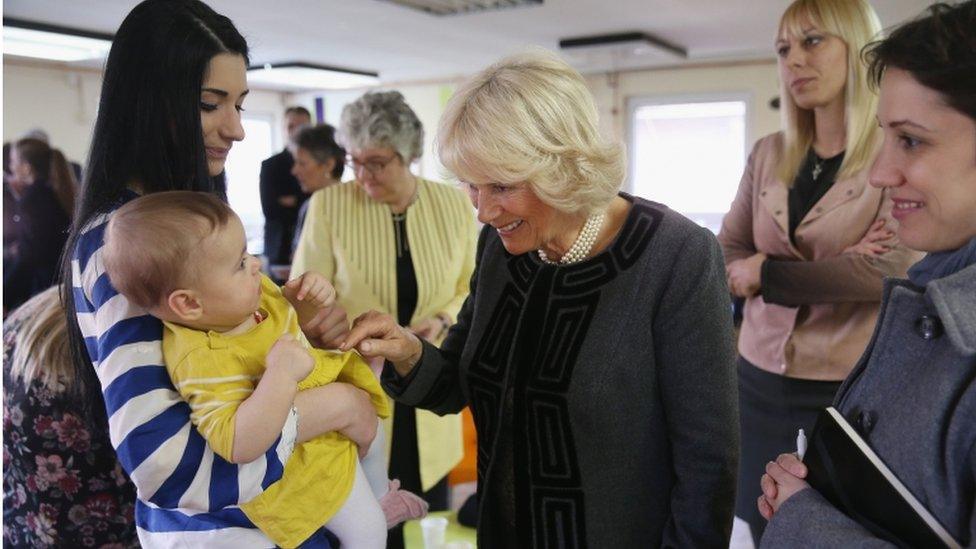
Duchess of Cornwall met mothers and children during her visit to the Belgrade children's home
World number one tennis player Novak Djokovic has thanked Camilla, Duchess of Cornwall for visiting one of the projects supported by his foundation.
The duchess was visiting a children's home in Belgrade, Serbia, during a six-day Balkans tour with Prince Charles.
In a video message, 11-time grand slam winner Djokovic said her presence at the Zvecanska Centre was "of tremendous importance and significance".
The Royal couple also visited Serbian and Commonwealth war cemeteries.
At the children's home, which cares for about 180 children and is part of a network of six in Belgrade, the duchess met representatives of Unicef and the Djokovic Foundation, which have been providing family outreach workers.
'They should clone you'
In his video message, the tennis star said: "We all want this project to succeed because we know how much benefit it brings to our society.
"Your presence here today is of tremendous importance and significance, since it brings this issue to the fore and attracts much-valued public attention.
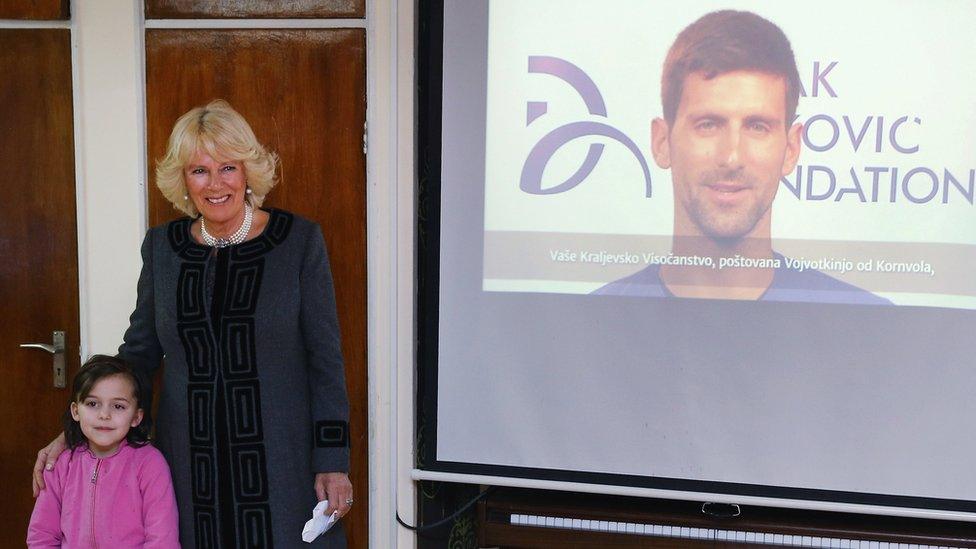
Tennis champion Djokovic sent recorded a special message for the duchess to thank her for her visit
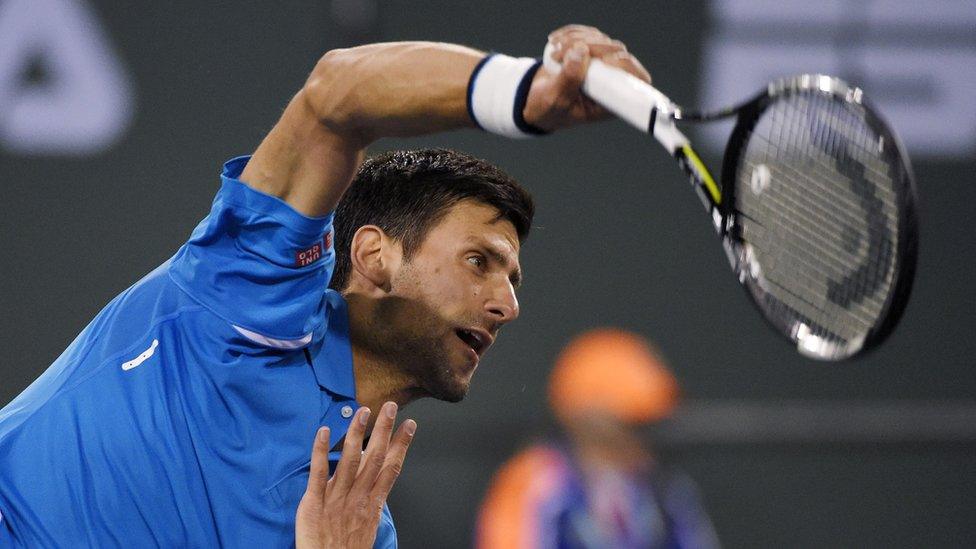
Eleven-time grand slam winner Djokovic is currently playing at the BNP Paribas Open in Indian Wells in California
Later, Camilla visited Atina, a charity that provides support for women who have been raped and suffered domestic violence. In the wake of the Syria crisis, it has also been supporting refugees and migrants.
Camilla told its founder Marijana Savic: "Thank goodness for you, and thank goodness you are here.
"I think you are incredible - they should clone you."
She bought 12 bagels at a shop set up to fund the charity, and, on request, wrote a note to women who use the service.
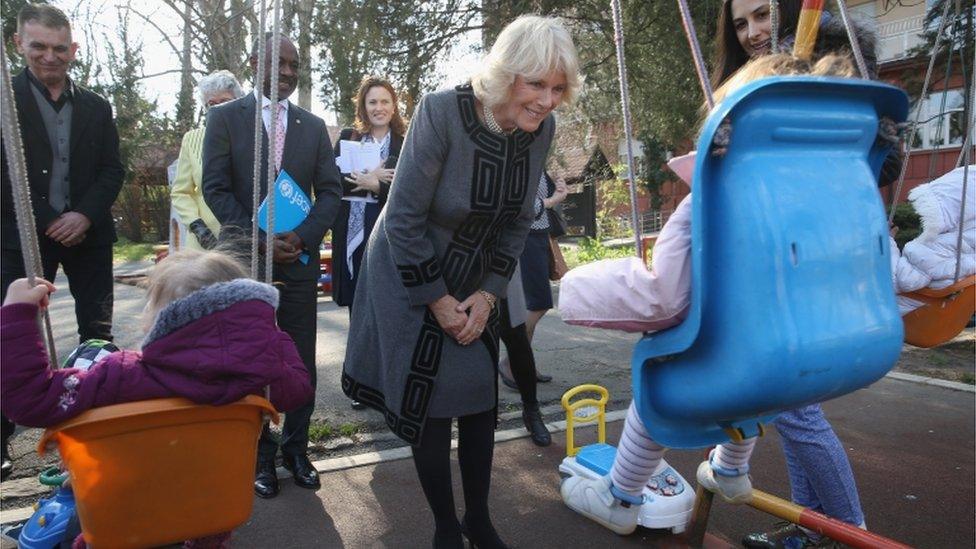
The Royal couple are visiting Croatia, Serbia, Montenegro and Kosovo on their six-day tour of the Balkans
It read: "With great admiration and my very best wishes to you all for the future."
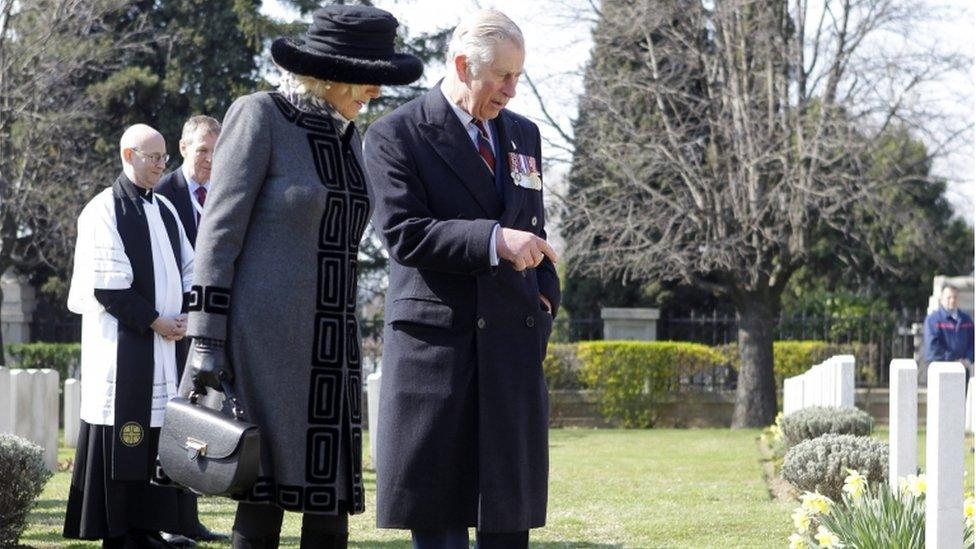
The Prince of Wales and his wife visited graves at the Commonwealth War Graves Cemetery in Belgrade
Earlier, she and her husband also attended a service at the Belgrade New Cemetery along with the president of Serbia, Tomislav Nikolic.
The memorial is located above an underground crypt in which the bodies of 4,603 known and unknown soldiers have been laid to rest.
They also laid a wreath at the Commonwealth War Graves Cemetery, where the remains of British and Commonwealth casualties brought in from more than 60 small burial grounds all over the former Yugoslavia are buried.
They were led into the site by a piper from the Royal Irish Regiment, and greeted by a British Military band.
Later, the prince met representatives from Serbia's Christian, Muslim and Jewish communities.